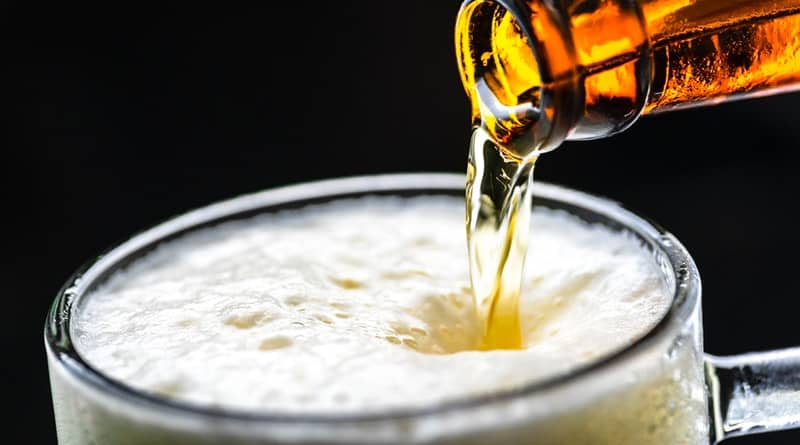6 Challenges that Family Members of Alcohol Addicts Face

Alcohol addiction is not a challenge for addicts alone. It is an issue that their families also have to face, even more during the recovery phase. The journey may be even tougher for the family as they need to deal with their issues as well as the addict’s struggles during treatment. If you have a loved one battling with addiction or going through alcohol addiction treatment, you need to understand the challenges facing you; this will help you create a strategy for handling the situation effectively. Here are the typical problems that family members of addicts usually encounter.
- Financial Instability
If the breadwinner of your family falls into addiction, the household will experience a financial setback. New addicts may end up spending a significant part of their income on alcohol and even lose their job in the worst-case scenario. Even if the affected member of the family does not contribute to the family’s finances, financial instability is an issue, because the addict may sometimes resort to theft to acquire money for buying alcohol. Treatment and alcohol rehab expenses may also cause your family financial difficulties. The entire family may be affected to the extent that they can be deprived of basic necessities.
- Marital Distress
Another major challenge that families battling with alcohol abuse face are marital distress. In fact, alcoholism is one of the key reasons for couples to seek out marital counseling. The addicted spouse fails to take his or her share of family responsibilities and may even become abusive in the relationship; this can lead to separation or divorce in the long run if things do not get resolved. Matters can get worse if both spouses are addicted to alcohol.
- Child Development Issues
Children suffer the most when one or both of their parents are addicted to alcohol. The instability of finances and relationship concerns can cause behavioral issues and academic problems for young children. Parental anxiety and divorce caused by alcoholism may also hamper a child’s emotional development and subsequently cause psychological disorders. Adult children suffer too and often become impulsive and anxious, which causes problems when getting into intimate relationships.
- Fear of Relapse
With families dealing with alcohol addiction, there is always a fear of relapse after the patient completes treatment and rehab. Even after undergoing treatment for months, the addict may still fall into temptation once and become addicted again. However, the right treatment option can make all the difference. For example, TSM Alcohol Treatment is considered ideal because it focuses on the reduction of alcohol intake rather than suddenly stopping completely. This method has shown proven results, with an effective decrease in cravings and minimal chances of relapse.
- Isolation
Excessive alcohol intake affects the addict’s emotional judgment and cognitive thinking greatly. In some cases, alcoholics may even cause embarrassment for the family in social gatherings and events. As a result, family members may start keeping their distance from the addict. Alternatively, the addict may avoid family functions intentionally to prevent such situations; this can lead to an extreme sense of isolation, which may subsequently cause physical and emotional stress for the addict.
- Domestic Violence
Another major challenge for a family battling with alcohol addiction is domestic abuse and violence. Alcoholism often exacerbates relationship stressors, and family members end up blaming each other for their situation. Demeaning behavior, insulting comments, humiliating statements, physical threats, and even violence becomes commonplace in such families. Intimate partner violence is common for people having drinking problems, and they can also be dangerous to their children and the elderly in extreme cases.
Dealing with Addiction-Related Challenges: Is it possible?
Addiction is a condition that requires proper care and treatment. As a family member, you need to understand the process thoroughly, from causes to the latest research studies, treatment options, and everything else there is to learn about prevention, recovery, and relapse. Educating yourself is the first step towards helping your loved one on the road to recovery. Furthermore, it will help you to stop blaming yourself or the addict for being in the situation. Beyond this, it can also boost your confidence and hope for getting life back to normal.
Besides understanding the root cause of the issue, family members need to play a supportive role for the addict. Being there for them and showing confidence in their ability to give up drinking alcohol can do wonders. Seek the right therapy and also support them in the program. Join a family support group to learn the perspective of other families going through the same situation. No effort is too big to help an addict who is, after all, someone you love, and you should do everything you can to get him or her on the road to recovery.
What's Your Reaction?
Newly middle-aged wife of 1, Mom of 3, Grandma of 2. A professional blogger who has lived in 3 places since losing her home to a house fire in October 2018 with her husband. Becky appreciates being self-employed which has allowed her to work from 'anywhere'. Life is better when you can laugh. As you can tell by her Facebook page where she keeps the humor memes going daily. Becky looks forward to the upcoming new year. It will be fun to see what 2020 holds.



